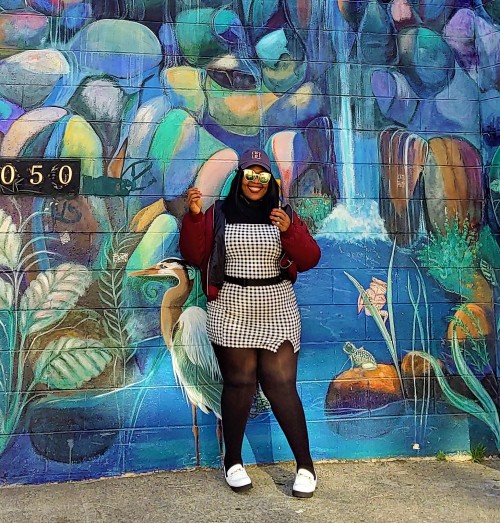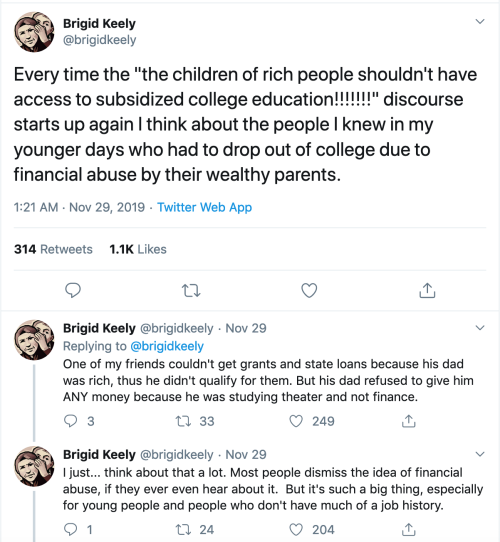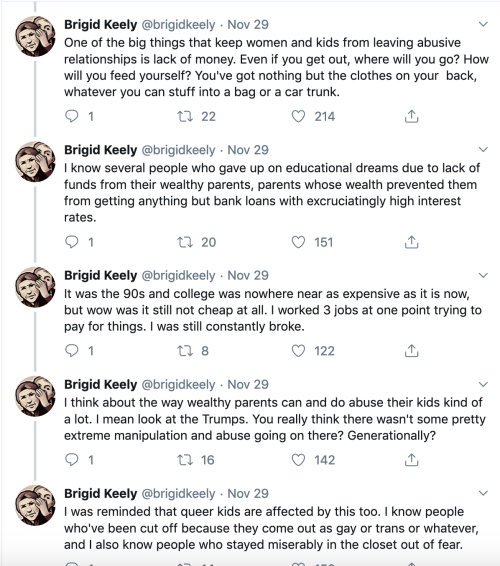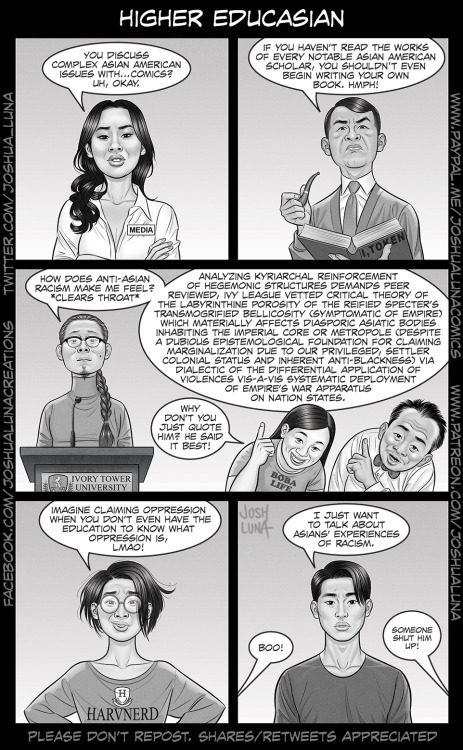#higher education
According to OECD test results, Finnish graduates rank second globally in terms of literacy skills. Well done! :)
If you want to see, how other countries fared, you can access the full report here: http://www.oecd.org/edu/education-at-a-glance-19991487.htm
Post link
MeetMaria Pilar Lorenzo, social scientist and policy researcher
1) What do you do?
For the past few years, I have carried out research works that intersect with issues relating to governance and development. Some recent projects I participated in dwell on Philippine National Rightsizing Program (Local Government and Education sectors), local government innovations (Local Government Academy), and Rapid Field Appraisal on Philippine Decentralization, Democratization and Development (Philippine Society for Public Administration and United Nations Development Programme).
At the moment, I am focusing on my doctoral research project that seeks to flesh out the interplay of the Association of the Southeast Asian Nations and Philippine higher education by probing into the higher education policies and practices situated at regional, national, institutional and local levels.
2) Where do you work?
I joined as a PhD candidate at Ghent University’s Centre for Higher Education Governance Ghent last November 2020. I am also a Research Associate of the Philippine Society for Public Administration, a Fellow of the Society of Transnational Academic Researchers (STAR) Scholars Network, a Member of the Pacific Forum Young Leaders Program, a Member of the ASEAN Think Tanks Network (by invitation only), an Associate Member of the National Research Council of the Philippines, a Member of the Phi Kappa Phi Honor Society, and I was recently a Fellow of the Regional Academy on the United Nations and a Fellow of the Royal Society of the Arts.
3) Tell us about the photos!
[Left:] This is a screenshot from the virtual awarding ceremony of STAR Scholars Network’s 2020 A. Noam Chomsky Global Connections Award. I am truly honored to have received an award in honor of Professor Emeritus Chomsky, one of society’s highly respected thinkers.
STAR Scholars Network is a non-profit grassroots organization that pioneers open access to knowledge, catalyzes innovative teaching and virtual exchange, advances social justice for underrepresented communities, and supports the academic advancement of emerging scholars in the Global South.
[Right:] This photo was taken at Keukenhof in Netherlands. I jumped for joy when I saw the piano only to find out that it’s just for display. Anyway, I doubt if I could play again my memorized pieces because it’s been a long time that I have not practiced since I moved to Belgium for my graduate studies.
Although I am super far from being a virtuoso, one of the things that have accompanied me throughout life is music. Music, for me, carries with it various ambivalences. It can be luminous and dark, entertaining and tragic, peaceful and restless. I think it is the powerful effect of music penetrating through the recesses of weary and wounded souls that it can be that salutary emotional shock as Plato once contemplated the encounter with beauty.
4) Tell us about your academic career path so far.
I joined Ghent University’s Centre for Higher Education Governance Ghent as a Ph.D. candidate in November 2020, and recently completed Master of Science in International Politics and Advanced Master of Science in Cultures and Development Studies as a VLIR-UOS scholar at the Katholieke Universiteit Leuven and Master of Public Administration at the University of the Philippines.
The various scholarships I received have also enabled me to satisfy further my intellectual curiosity by participating in a number of academic programs organized by the Indiana University, University of Illinois, University of Lausanne, University of Copenhagen, United Nations University Institute on Comparative Regional Integration Studies, University of Hohenheim, Institute of Advanced Studies Köszeg, Charles University, National Graduate Institute for Policy Studies, University of Graz, Kobe University, and Santa Croce.
It is also an honor that I always take pride in being considered as a Scholar of the Nation at the University of the Philippines Integrated School/University of the Philippines Diliman Campus from kindergarten until graduate school. The kind of education I received there is not the usual trajectory of teaching a student to be employed well one day. In my personal experience, it is to sharpen all senses so that a student can be attuned to the victories and struggles of every age.
5) Anything else you’d like to share
I can describe myself as an avid reader and an eager learner, and this kind of personality has led me to pursue knowledge from an array of sources – leaving no stone unturned given the time, energy and resources that are available. My love for learning also implies getting trained in the needed academic rigor that any researcher has to undergo and learning from other sources that may not necessarily be found within an academic setting. It is for this reason that I like conversing with all sorts of people. I believe that every person is so unique that there is much to learn from whomever I have the privilege to meet.
Post link
If you’ve got student loans, you’re going to want to watch this video.
President Obama just took two major steps to make life easier for people with student loans, and there’s a good chance you or someone you know will benefit from them really soon. After you’ve watched, tweet/re-blog/Facebook it to get out the good word.
My usual retort to people who don’t want “universal healthcare/education/basic income/etc.” under the pretense that “the rich shouldn’t have access to it” is that it’s cheaper to just give it to everyone no-question-asked than to try and judge every single case just to exclude a tiny minority of them.
But this tweet thread? This right there? That’s a damn powerful argument. Something that can actually convince people emotionally, more than my cynical, it’s-cheaper-that-way, pragmatic approach.
I’ll keep it, and I’ll re-use it, because it’s with thread like this that you change the world, one opinion at a time.
The number of people I know, myself included, who stayed in the closet because they feared the lose of financial support from their parent is crazy.
My partner grew up poor. Her parents didn’t have shit. But they managed to financially abuse her in this exact manner just by refusing to provide documentation that they were poor. No parental income documentation? No FAFSA. No FAFSA? None of the need-based aid she was 100% qualified for. No aid? No college for her poor ass.
So no, this “but what if a person who didn’t need the help got it” rhetoric will not just harm the children of the rich, even the marginalized and estranged children of the rich. It harms everyone whose parents don’t want them to succeed.
I dropped out of the prestigious college I started at because I lost my financial aid when my parents got an unexpected one-time windfall and refused to give most of it to the school. I don’t blame them, really, but I struggled for another year to afford a state school, then got knocked up and dropped out and never really went back because school just kept getting more expensive.
I know people who did not go until they were in their mid 20s because their parents just wouldn’t do the FAFSA and they couldn’t get aid without it.
I went to the school I picked because of the financial aid I could get that first year. If I’d picked almost any other school, I would have qualified for a full ride, merit-based, because I was a national merit scholar coming out of high school with a 3.87 in mostly ap classes, scads of activities, etc.
I sometimes think if I had to give advice to my younger self I’d tell them to start at the state school even if there were people from the home town there. I’d have met my husband 10 years earlier and finished my degree, maybe, you know?
It’s probably worth noting one of the known side-effects of long-term, persistent poverty situations is a decline in executive function capacity. Or in other words, it may be that in a lot of these cases where people were “poor enough” to get financial assistance, but where their parents “didn’t bother”, “refused” or “wouldn’t do it” with regards to filling out the forms, what we were actually seeing in those parents was a group of people who looked at the forms (which no doubt require things like “putting down your full income for multiple years” or “listing all your assets at current market value”, looking up details of past tax filings and tax returns over a multi-year period, providing payslips as evidence, providing bank statements, and so on) and just went “I do not know where to even start with these, and there’s no way I can fill them out”. That isn’t malice. It’s the cognitive consequence of living for years pay-cheque to pay-cheque, with very little margin for error on anything, and no cognitive resources available for anything other than worrying about whether the money will stretch far enough this week, this fortnight, or this month.
The malice, if there is any involved, is the impersonal malice of a system which first grinds people into poverty, then expects them to function at the same cognitive level as the most wealthy of the wealthy (who in all likelihood hand all the paperwork to their accountants and say “figure out how to get Bratleigh through college at minimum cost to me, would you?”).
(I have a certain amount of sympathy. I’m autistic, which is a disorder which diminishes executive functioning capacity; my joke is my mental executive spends a lot of their time out on the golf course. I could get funding through the NDIS to help deal with the side effects of my disability… if I could just assemble the necessary executive function to be able to fill out all the paperwork, collate all the necessary evidence, submit an application, and argue it through the bureaucracy. For some strange reason - can’t think why - I have a bit of trouble with this. Bureaucracy is designed to be navigable by bureaucrats - as in, bureaucrats are the ones who design them, and thus they think it’s all pretty straightforward, because this is what they do for a living. The rest of us have to figure it out from first principles).
Returning back to the main theme of the thread: one of the benefits of universal free tertiary education (which is something the baby boomers had in my country, although they’d pulled the ladder up behind them by the time I graduated high school) is it provides so many more options to so many more people - and it also costs less to administer than any stringently means-tested scheme for funding tertiary students. In the same way, a decent universal basic income will make a huge difference for the people at the bottom of the heap (enabling a lot of the mental calculus of poverty to be if not actually avoided, at least greatly diminished) even as it barely counts as a drop in the bucket to the wealthy. The 1% are more likely to notice a universal basic income as an increase in their taxes than an increase in their income - but then, they can afford it.
[image description by @snapcracklepop-myjointshere:
(from image to text generator, edited)
Twitter thread from Brigid Keely, @ brigidkeely
Every time the “the children of rich people shouldn’t have access to subsidized college education!!!!!!!” discourse starts up again I think about the people I knew in my younger days who had to drop out of college due to financial abuse by their wealthy parents.
One of my friends couldn’t get grants and state loans because his dad was rich, thus he didn’t qualify for them. But his dad refused to give him ANY money because he was studying theater and not finance.
I just… think about that a lot. Most people dismiss the idea of financial abuse, if they ever even hear about it. But it’s such a big thing, especially for young people and people who don’t have much of a job history.
One of the big things that keep women and kids from leaving abusive relationships is lack of money. Even if you get out, where will you go? How will you feed yourself? You’ve got nothing but the clothes on your back, whatever you can stuff into a bag or a car trunk.
I know several people who gave up on educational dreams due to lack of funds from their wealthy parents, parents whose wealth prevented them from getting anything but bank loans with excruciatingly high interest rates.
It was the 90s and college was nowhere near as expensive as it is now, but wow was it still not cheap at all. I worked 3 jobs at one point trying to pay for things. I was still constantly broke.
I think about the way wealthy parents can and do abuse their kids kind of a lot. I mean look at the Trumps. You really think there wasn’t some pretty extreme manipulation and abuse going on there? Generationally?
I was reminded that queer kids are affected by this too. I know people who’ve been cut off because they come out as gay or trans or whatever, and I also know people who stayed miserably in the closet out of fear.
/end Image Description]
Post link
Knowledge is power, but power can corrupt. White institutions teach a select class of Asians to adopt elitism and gatekeeping in order to harm their community and deny lived experiences.
Asian Americans have the largest wealth gap of any U.S. racial group. Elitist Asians are a small percentage, yet they’re purposely given the largest AsAm platforms and resources in order to perpetuate the Model Minority myth and downplay anti-Asian racism. (for more info, see my Monomyth comic)
To be clear, higher education isn’t inherently bad. It’s like any other tool—it can enlighten and empower, or be misused. There are many Asian academics, educators and journalists who resist white supremacy and fight for their communities. But we’re talking about the ones who don’t.
These elitist tokens claim to fight for the most marginalized. In reality, they want to be the only Asian at the white table—the voice for the “voiceless.” White supremacist institutions are happy to seat them there, since tokens don’t dismantle the system but reinforce it.
Netflix’s show The Chair inadvertently captures this dynamic. It was widely touted as positive Asian rep, yet Sandra Oh’s character protected and prioritized a white male colleague/lover from accountability while treating marginalized students and her Black colleague as obstacles. When I saw prominent Asians and other POC gush about feeling seen by Sandra Oh’s The Chair character, I was disappointed—but not surprised. It speaks to their lack of self-awareness and how accustomed they are to trampling over their own people that they don’t think it’s wrong.
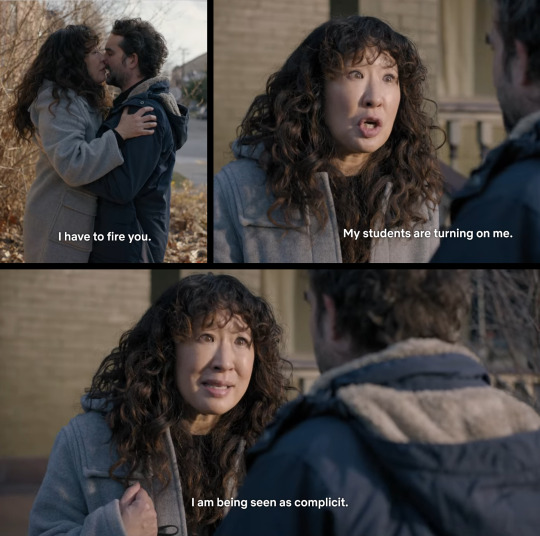
This is the major disconnect. We supposedly understand how structural racism works and that higher education—like every other industry in the U.S.—perpetuates white supremacy. Yet POC who get accepted to ivy leagues are not only celebrated, but viewed as automatic leaders.
The truth is, these institutions would never allow POC to matriculate if there was a real threat of them dismantling their bigoted systems. The token’s purpose is to insulate these institutions from accusations of bigotry, promote bootstrap narratives, and keep other POC out. Asian tokens know that to keep these prestigious positions of power, they must avoid being seen as a threat by white people. So, despite making outward claims of dismantling the Model Minority myth, they internalize it as fact—to the point of adopting white guilt as their own.
Tokens mask their gaslighting, bullying, and abuse by over-intellectualizing racism—the way white people taught them to. We’re seeing this with anti-Asian hate crimes, and how tokens police language and emotions while creating a hierarchy of which victims matter and which ones don’t.

This includes the thorny but necessary conversation of holding other POC accountable for anti-Asian violence—especially the Black community. Even though white people commit the majority of anti-Asian hate crimes, there’s also a significant pattern of Black people doing it too.
But according to elitist Asians tokens, that pattern isn’t relevant, and Asians shouldn’t be upset or talking about it. This is because, in internalizing the Model Minority myth, elitist Asians see themselves as above other POC and think accountability is anti-Black. It’s not.
Let’s be clear: assaulting Asians for being Asian is violent racism. The attacker’s race doesn’t change this. While we should be sensitive to the context of white supremacy when holding Black people and other POC accountable, that doesn’t mean we shouldn’t discuss it at all.
Yet elitist Asian tokens sabotage efforts towards solidarity, healing, and progress because they project their class privilege onto a community that is larger and far more vulnerable than them. Meanwhile, white people are happy to let tensions between Asians and Black people remain.
The situation is frustrating and sad. How much violence could we have prevented if our communities did a better job of educating and tackling difficult conversations head-on instead of avoiding them? How much solidarity is lost because we’re at the whims of tokens who don’t care?
It’s ironic that the ones who supposedly understand the power of education the best are using it the worst. But that’s exactly what white supremacy wants: violence, division, and ignorance. That’s why it’s up to all of us to speak up and spark these conversations—so we can learn.
(Please don’t repost or edit my art. Reblogs are always appreciated.)
If you enjoy my comics, please pledge to my Patreon or donate to my Paypal. I lost my publisher for trying to publish these strips, so your support keeps me going until I can find a new publisher/lit agent
https://twitter.com/Joshua_Luna/status/1134522555744866304
https://patreon.com/joshualuna
https://www.paypal.com/paypalme2/JoshuaLunaComics
Post link


